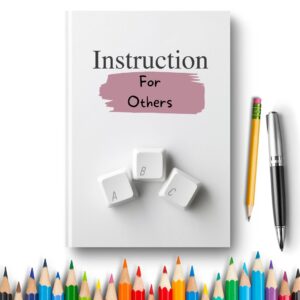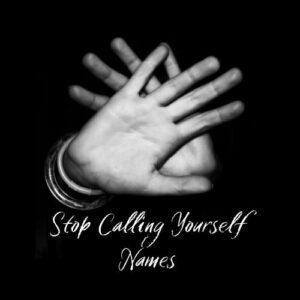A first step to getting authority over your own mind is to be able to make the distinction between situations and thoughts. One of my teachers refers to this as “separating math from drama.” This may sound simple, but I assure you it’s not as easy as it might seem.
We think 60-80,000 thoughts every day. Most of these occur outside our conscious awareness. Our brain is constantly scanning, evaluating and narrating our experience and environment. It’s a bit like the ticker constantly scrolling across the bottom of the screen on any given news program. We are so familiar with this ceaseless internal mental commentary that most of us don’t realize that what our brain is telling us is not actually a reflection of reality, but only an interpretation of it.
This is not a problem. This is what brains are engineered to do. Deliberately teasing out situations from thoughts is tedious business and often unnecessary. However sometimes; especially when situations in our world become unfamiliar, unpredictable or threatening, the running narrative in our minds gets faster and louder; offering us a stream of frightening or disturbing thoughts. If we don’t understand what’s happening or what we can do about it, it can cause a great deal of distress. If you can relate to this, read on…
First let’s get clear on the difference between a situation and a thought for the purposes of this concept:
A Situation
Something that happens or is occurring in the world or our world that is not in our present-tense control. These include:
A present moment circumstance (something we can’t change in the present moment such as sheltering-at-home or our current weight).
Other people’s actions, words, etc.
Things that happen (accidents, viruses, death, etc.)
The past and things that occurred in it; whether years ago or minutes.
Physical pain; sensations in our body.
I also refer to situations as Zero Point Reality; as in the current reality of our personal, interpersonal, life and world situation.
A Thought
A thought is a phrase in your mind.
It is your interpretation of a situation.
It’s your opinion, judgment or assessment of the situation.
Thoughts reflects our beliefs and ideas, but they’re not objective reflections of reality; they are subjective interpretations of reality.
When we don’t understand the difference, we can confuse our thoughts with reality and create unwanted stress for ourselves.
Being able to make this distinction can help organize our minds, widen our perspective and allow us to see options, choice and locus of control our brain would otherwise block from our awareness.
Here’s a simple 2-Step practice to apply this concept:
Step 1: Thought Jot. Ask yourself, “what is my mind telling me right now?” Now take a piece of paper and jot down 10-20 thoughts in answer to this question. The only rule is to not write questions. If your brain offers you a question, answer it and write it down as a thought. It will probably look something like this:
1.) Sara’s birthday is next week.
2.) I want to make it a special birthday.
3.) It’s noon and there are 10 dishes in the sink.
4.) I’m so sick of cleaning the kitchen.
5.) I wish the kids would clean up after themselves.
6.) Jim doesn’t even seem to notice the kids lately.
7.) He got that promotion last month.
8.) He’s been preoccupied ever since.
9.) I’ve been awake by 5am the last 3 nights.
10.) I’m so tired all the time.
11.) I ate a bag of chips last night after dinner.
12.) I’m overeating again and I need to stop.
13.) I have an appointment with my therapist next week.
14.) I need to remember to talk to her about my weight gain.
Step 2: Go back through your list.
Underline those that reflect situations.
Circle the ones you identify as your thoughts.
Try this with the list above.
Can you tell which ones are situations and which are thoughts?
Don’t be surprised if everything you write down the first time are thoughts. The more you practice this, the better you’ll get at catching the situations.
Here’s the important point of all this: Situations are things you cannot control in the moment; thoughts are where all your power lies.
You can access your power though questions like these:
How do I want to show up in this situation?
Who do I want to be in this situation?
How do I want to feel about this situation?
How do I want to respond to this situation?
What would be a useful way to see this situation?
Try this practice for the next week. I’d be interested in what you notice, so email me with any feedback.
If you liked this week’s blog, I plan to offer a free Webinar training sometime in June so stay tuned for details in the weeks ahead.
In the meantime, I hope you have nice weekend and look forward to connecting again next week.
Warmly,
Julie
Answer key: Situations = 1, 3, 7, 9, 11, 13



